Pioneers of punk in Argentina in the early 90’s, the girls of Penadas Por La Ley moved indefinitely to the Basque Country in 2001.
Since then, album releases and tours have continued relentlessly until 2022, when the band’s creative energy is more relevant than ever.
If the last album Bad times for freedom (« Malos tiempos para la libertad ») brought rage and anger, the new CD Iraultza Gara insists with sincerity and commitment under a musical quality always specific for “Penadas »! Given this impressive longevity, we were able to interview only the original duo of the band on tour (Nayla and Faby), today they are 4 members.
We ordered drinks on the terrace and discussed. | Take a seat with us 😉
| Interview by Baba – Translated by Baba & Atu.

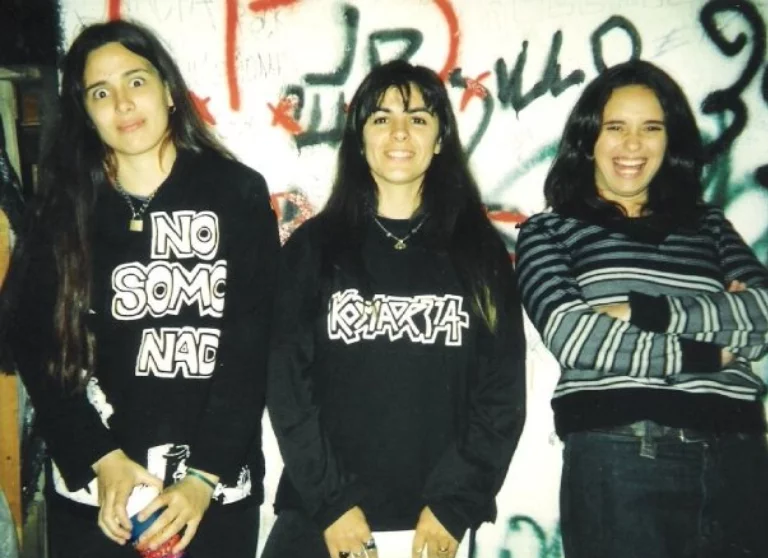
The band was created in 1993, how can you describe the punk feminist scene in Argentina in those days?
Nayla: This question is for Faby who started in the group in 1993. I joined them in 1995.
Fabiana: From my point of view, there was nothing. Everything was very chauvinist and it is still to this day. Back then, we wanted to do something just between us. We were 3 women at the beginning and we saw no girl who embodied a kind of reference or feminist model. Because there was nothing, we started making some noise. And this is how we are here today…without any pretense!
Nayla: It should be noted that in Argentina we were under a dictatorship until 1983. It wasn’t until the 90s that punk began to flourish. The punk-hardcore level was really cool, but it was just guys. And that was always very sexist, yes.
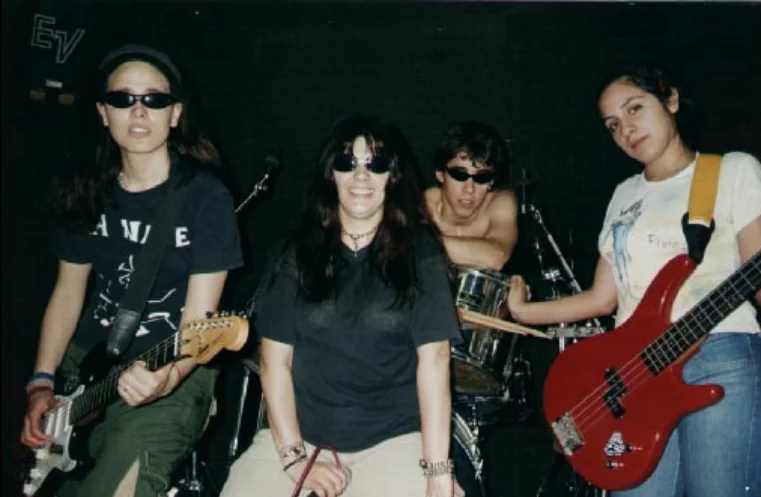
So, you are the first girls’ punk band in Argentina?
Nayla : You might say so. At least, to our knowledge. Maybe there were other girls who also did punk on the sly. Anyway, we were the first ones to release an album. I started in a band of guys but I’ve always wanted to play with girls.
At that time, I was following Penadas por la ley everywhere and Fabiana asked me to join the band two years later. (We told this story in the song 1995 included in our latest EP, Iraultza Gara).

What are the musical influences and the artists who motivated you to create the band?
Nayla : We listened especially to Basque punk, which is why we currently live in Bilbao.
Our main references were La Polla Records, Kortatu, Parabellum and Eskorbuto. Our dream was to play in the Basque Country.
It’s been 21 years that we’ve been here and we’re very happy.
“Penadas por la ley” it’s a very unique band name. Why did you choose it?
Fabiana : Argentina is a republic but voting is compulsory. If you do not vote, then you are ‘ penado por la ley’ (punishable by the law). The punishment changes each year. It can be a fine, but you may also no longer be able to leave the country. My sister (former group drummer) had never voted in her life. She was ‘penada por la ley’. We loved the name and that’s all.
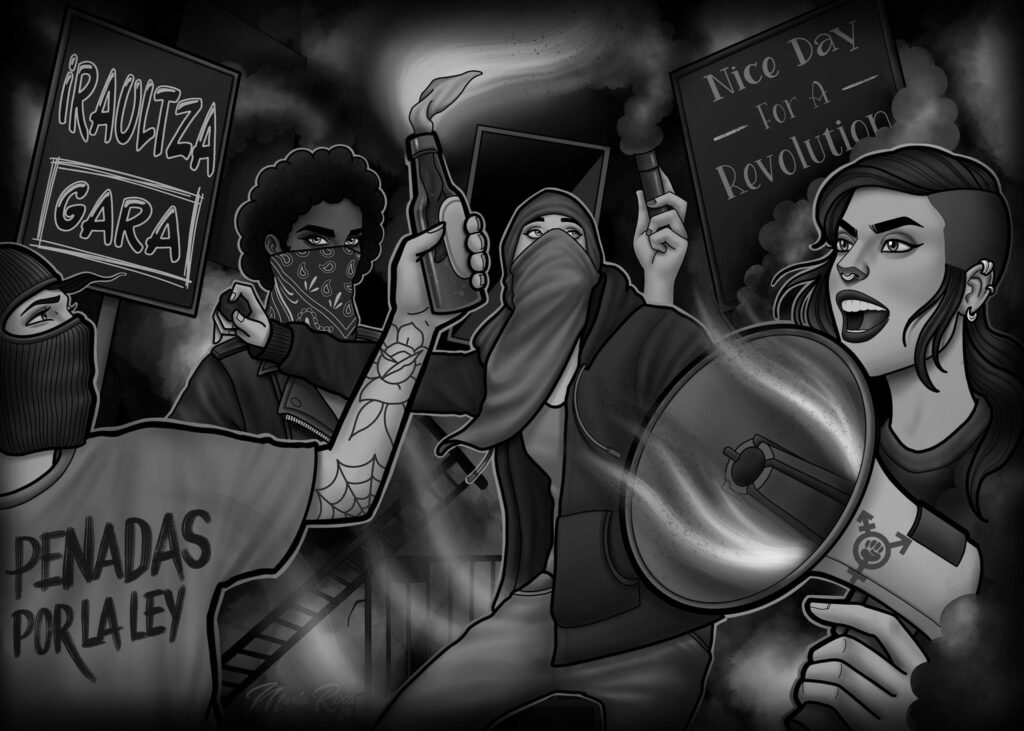
Do you consider Penadas por la ley as your tool of activism and political engagement?
Fabiana : Yes, it’s a way to report some inequalities. It’s our grain of sand.
Nayla : Politics is everywhere. I do not understand those who say ‘I don’t care’. Political and social injustices that we encounter or that we experience sometimes ourselves (and above all women) concern us all directly. That’s why you have to take a stance. We do that through music. It allows us to spit out all the shit that we’ve to swallow’.
Fabiana : It’s also some kind of therapee.
Did you find in the Basque Country an artistic and militant dynamic as required by reputation? Is that why you settled in Bilbao when you arrived in Europe?
Fabiana : Yes, we identify a lot with the lyrics of other Basque bands and their struggle. By the way, as we’ve already said, most of the bands that inspired us are Basque and that’s why we moved.
Nayla : I believe that in the 1980s, we experienced a similar situation in Argentina following the dictatorship in the Basque Country. It’s true that there was no feminist revindication and we missed it. Thankfully, the situation has changed, although there is still much work to be done.

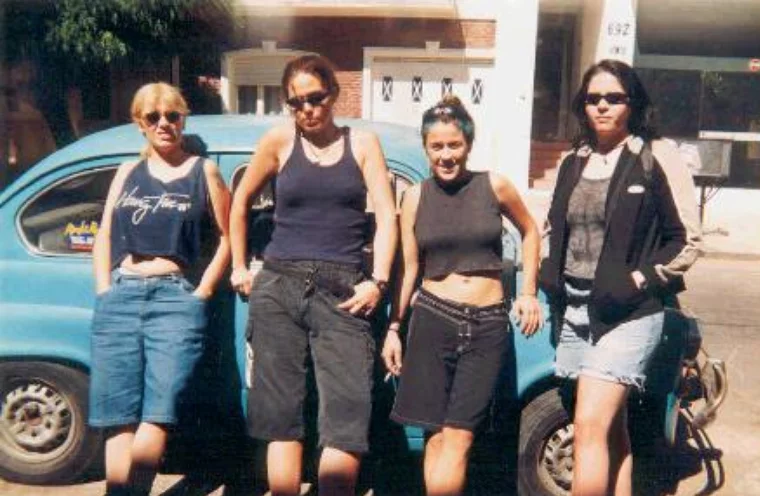
How did you understand your music practice compared to what you knew in Latin America? Can we say that the band has ‘changed’ as a result of this move?
Nayla : The biggest change that we have experienced is the transition from the 1980s to the 2000s. There was a welfare state system completely different from what we knew.
Everyone had access to amplifiers and amazing instruments. This would not have been possible in Argentina, even if you worked hard your whole life. When we arrived, we were truly shocked.
Nayla: We didn’t play for a while because Faby’s sons were very young and we needed to adjust to our new life. But we soon realized that we had the opportunity here to have income and to improve our sound quality.
Fabiana: We could now afford drumsticks, rent a rehearsal space, eat… and to be touring elsewhere. Being able to record an album with the money that we earned independently gave us more creative freedom. This adaptation process took a little longer, and in 2010 we really came back.
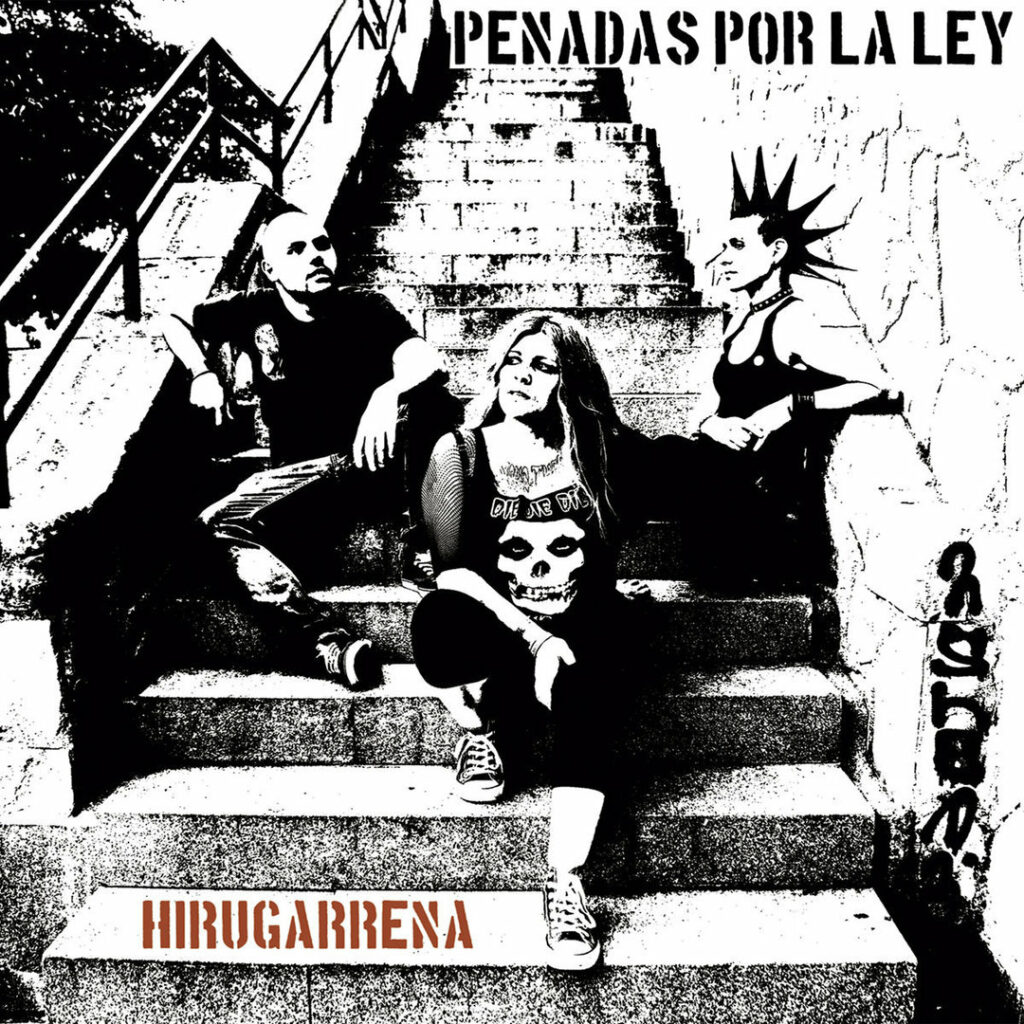
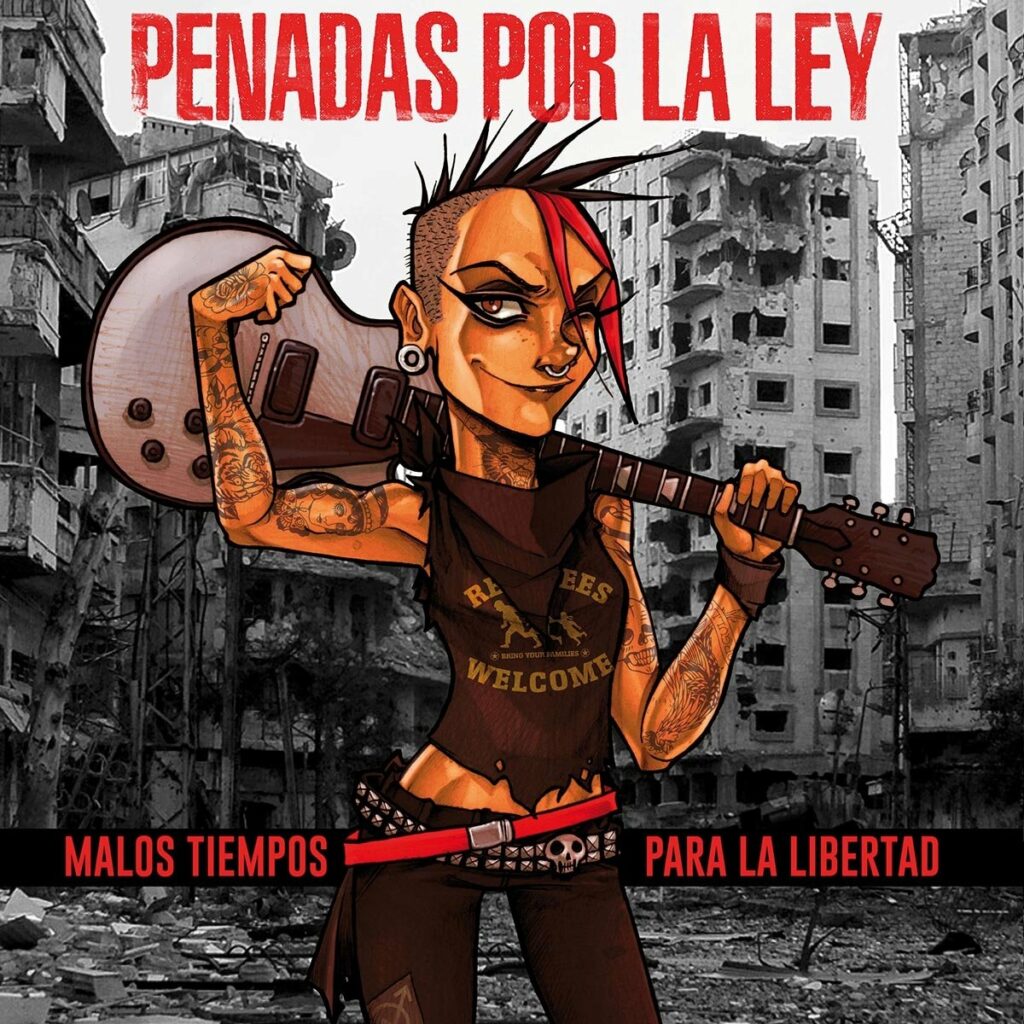
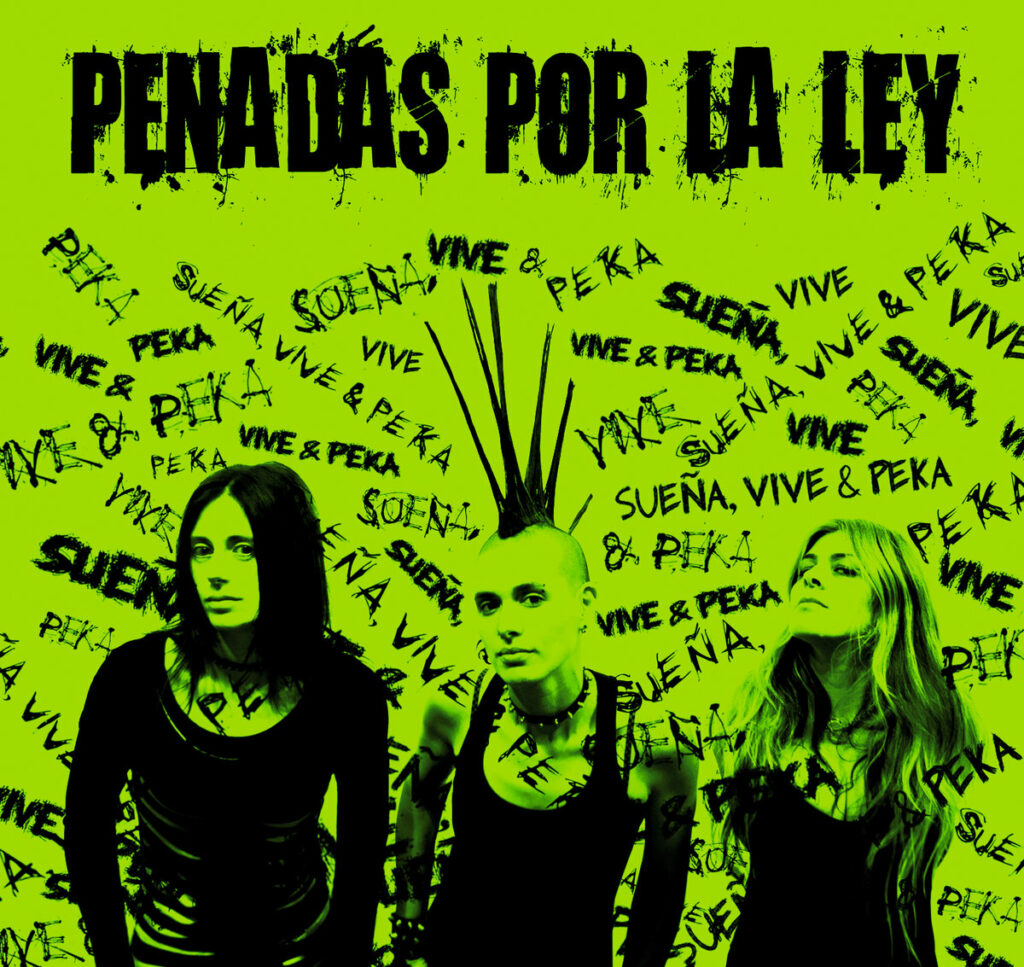

What are the experiences on tour in Europe that impressed you the most? Why?
Nayla: We freaked out with the way of doing things in France, especially in Brittany.
When we went to the Vive le Punk festival, we thought that we were in the wrong place! There was nothing there! It was an isolated place, in the middle of a mountain and the weather was awful.
Fabiana : We arrived at a huge barn where the door was fastened by four wooden sticks. Someone called us and said: ‘this way, this way’. We came in and there was no music, we were walking and there was nothing.
When we reached the door and they opened it, we were blown away by the noise of the concerts. There was a crazy atmosphere; moreover, it was an eco-friendly festival that didn’t disturb the animals around.
Nayla: Just because you’re a punk doesn’t mean you have to botch things. It has been a long time since we’ve realized that we could do things differently, by integrating and especially by respecting everyone.
Living punk in this state of mind is what I like the most.
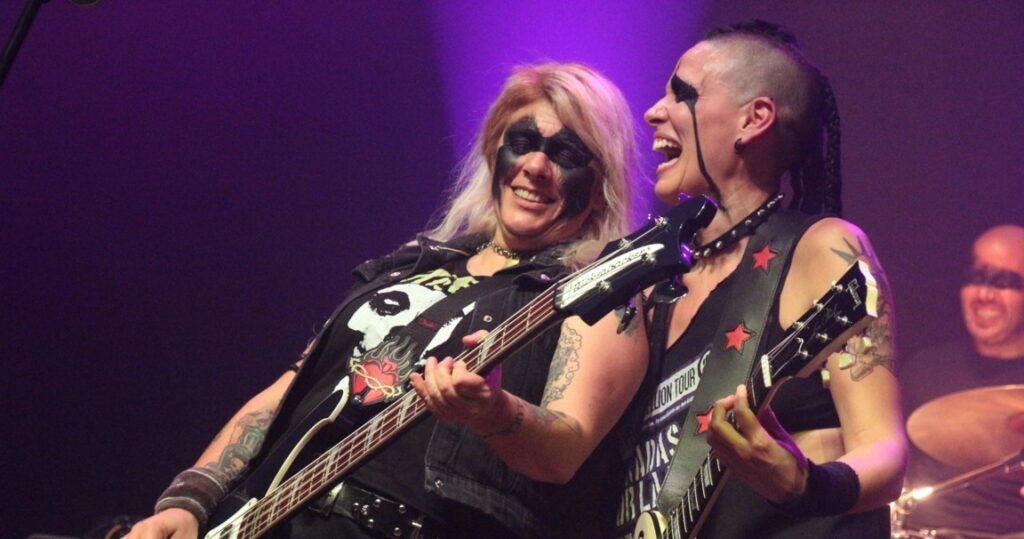

Future projects?
Fabiana : Hahah, tomorrow we go to Brittany. And as a future project…. release the album!
Nayla : During the pandemic we recorded an album: Iraultza Gara, that came out thanks to people’s support through crowdfunding. It was originally only available to those who had asked for it. But then, we talked to 6 or 7 small labels (including ours, Guerrera Records) and we released it at the end. We are very proud of the result, which is why we look forward to presenting it to the public, and to keep playing as long as we can.

